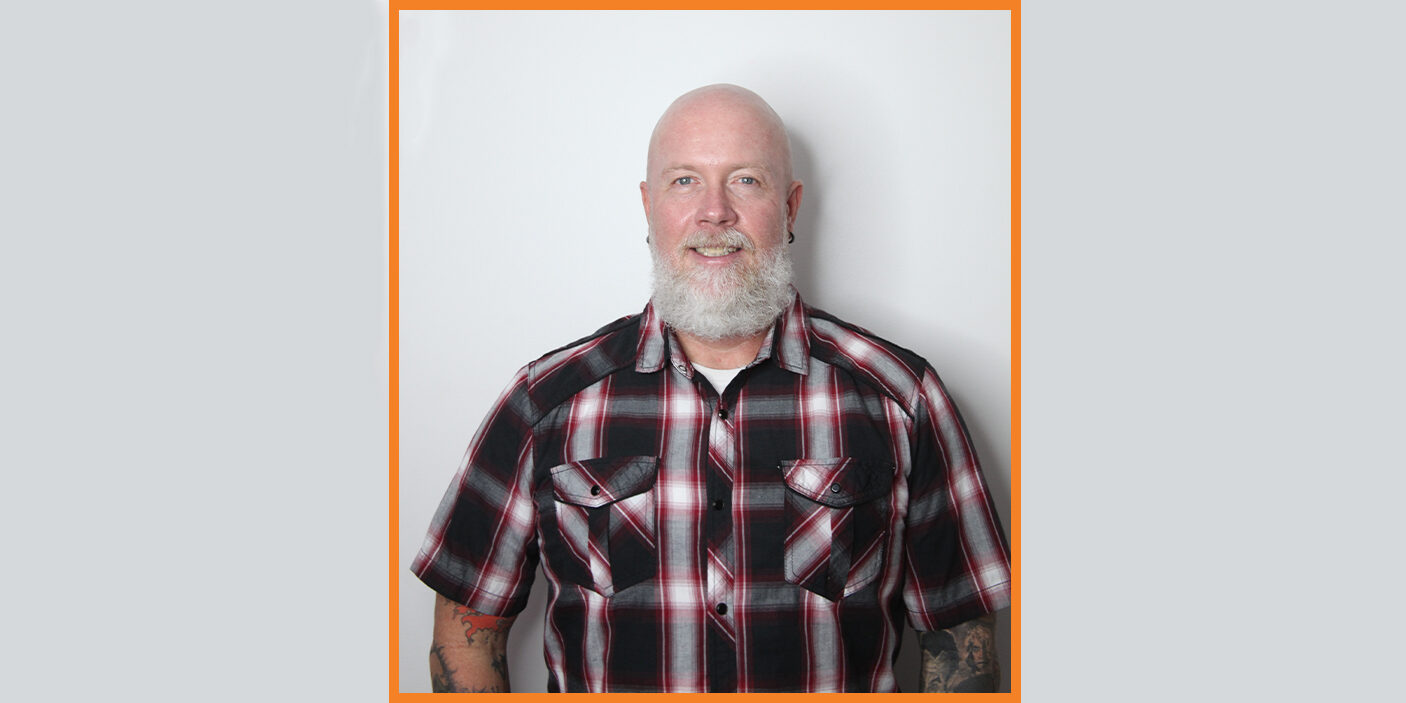Meet one of Mohawk Valley’s unsung heroes – – Frank Yarborough, a therapist at Cayuga Centers, a child and family service agency. His journey from being a foster child to helping at-risk youth tells a tale of hope and healing for New York State’s struggling families and kids.
Frank was born into a tumultuous home environment. And at the tender age of 4, he entered the foster care system. Fortunately for Frank, his new foster parents were loving, hard-working dairy farmers. They gave him new structure, work ethic, problem-solving and foundational skills that served him well. His time in foster care helped set the stage for future success in the often-challenging world of clinical therapy. But his journey didn’t begin on that path…
Frank began his career working on the railroads and in construction. Then, life threw him a curveball when he was diagnosed with Dystonia – – a rare disease that can cause severe and painful muscle spasms throughout your body. His outlook felt bleak until he started talking with a counselor who helped him evaluate his skills and determine his options for a new career path. After much reflection, Frank’s time in foster care motivated him to return to school to pursue a career working with children. He obtained his bachelor’s degree in Psychology and began working at Cayuga Centers, coaching youth on social and life skills. But he didn’t stop there. Frank returned to school to receive his Master’s Degree in Mental Health Counseling and transitioned into a clinical role as a Community Psychiatric Support and Treatment Therapist. He went on to provide counseling, education, and planning for Mohawk Valley’s youth and their families.
Frank’s time in foster care gives him a unique perspective and valuable insight when working with the community. He’s able to connect with kids based on his lived experience. His ability to tap into the feelings he had during his time in foster care helps him build trust and identify and prioritize issues that need attention. His approach begins with the parents, usually meeting them on their own turf where they are most comfortable. Support starts with assessing family needs and determining how the child is doing at home. Then, Frank can begin the healing process. His first few sessions are about making a connection rather than discussing family issues. Doing fun things like going out into the community, playing basketball, going to museums, or sometimes just playing with other kids helps them open up. As Frank says, “once I can connect, that’s when we can start to correct.”
Sometimes, it’s a balancing act. In Frank’s own words, he sometimes has to have “the hard conversation” and asks them to look at themselves. “I soften the blow by letting them know I was a lot like them; I struggled. It’s ok to struggle. Through struggle, we grow.” As these kids transition from childhood to adulthood, they must adjust their behaviors. By helping them see and experience the positive side of changing negative behaviors, Frank helps these kids develop their self-esteem. “It is a struggle getting them to that point. The best thing I can do is show them I’ve been there, and this is something they have to do when they are ready. If they are ready, let’s do the work.” says Frank.
Frank’s approach was pivotal in helping one child on the brink of self-destruction. After multiple suicide attempts and a high-risk home environment, Frank helped the child turn his life around. By slowly helping him achieve small accomplishments, his self-esteem grew. Frank flooded the child with positivity and provided consistent structure. Small goals like waking up on time and getting out of bed grew into larger accomplishments like returning to school. With each goal achieved, the boy started to feel more confident, and his self-esteem blossomed. Eventually, the child did go back to school, graduated, and went on to secure a job. When asked about this remarkable breakthrough, Frank humbly responded, “I felt great watching it happen.”
Frank has seen a positive shift in the foster care system over the years, with more support given to kids and their family. There is more emphasis on what happens after foster care, helping families change how they look at the world and understand they can succeed. Frank enjoys the approach of Cayuga Centers. Cayuga Centers is unique in its focus on meeting the kids and their families in their own home environment, allowing families to feel more relaxed, He also enjoys collaborating with his co-workers and supervisor who support each other by showing different techniques and ideas. “We share the same clients and can help with our services through making contact and comparing notes on the child. I think that gives them a lot better care through that collaboration”. The building blocks of the Cayuga Centers team is crucial to the success of the program. It takes a village to create successful outcomes for these kids and families. The Cayuga Centers’ treatment team can include a Psychosocial Rehabilitation Therapist, Other Licensed Practitioners and Community Psychiatric Support Treatment Therapists like Frank, who work together for the same family. Frank’s perspective is “families appreciate how far Cayuga Centers is willing to go to ensure success.”
As the interview ended, we asked Frank what his favorite part of the job was. His reply? “My favorite part is being able to give back to a population that I was once part of. The best part is being able to see the children change, getting to go home at the end of the day, knowing I was able to help a few kids with their struggles. And hopefully, they grow up to become outstanding citizens, and most importantly, very happy.”
Based on Frank’s enthusiasm and dedication to the clients he serves, happiness can be achieved.
For more information about becoming a Foster Parent or supporting Foster Youth, please visit cayugacenters.org








